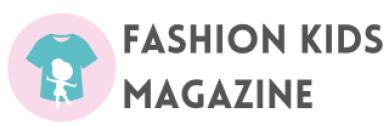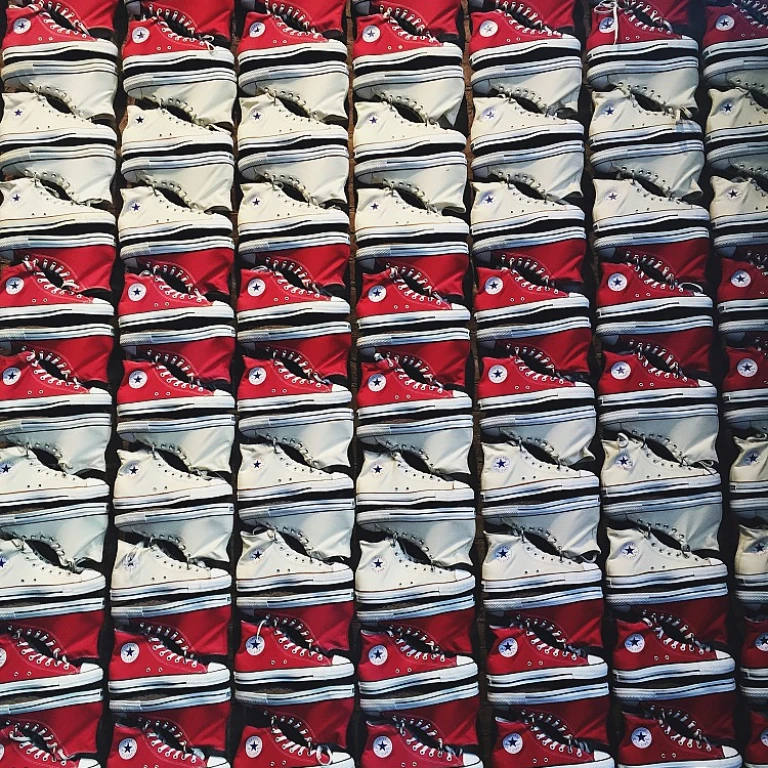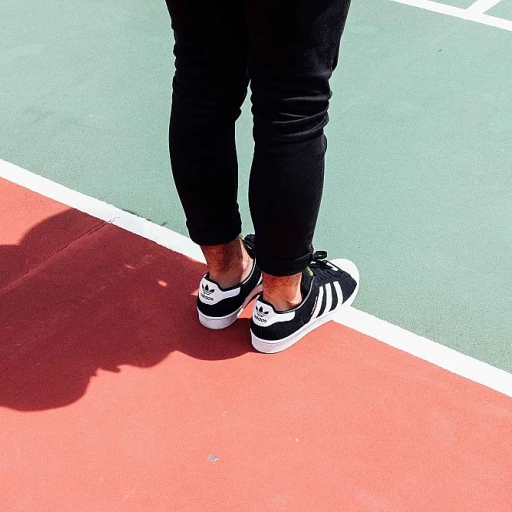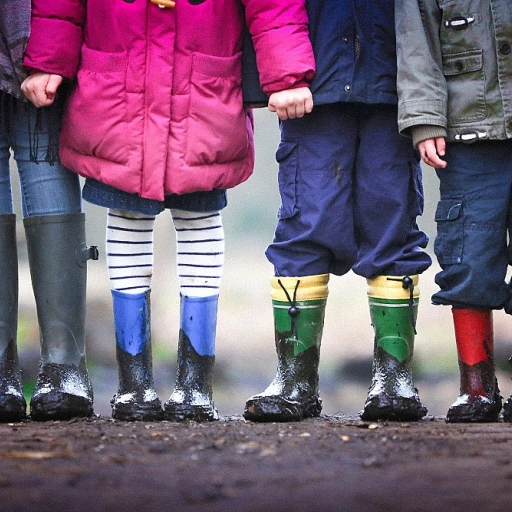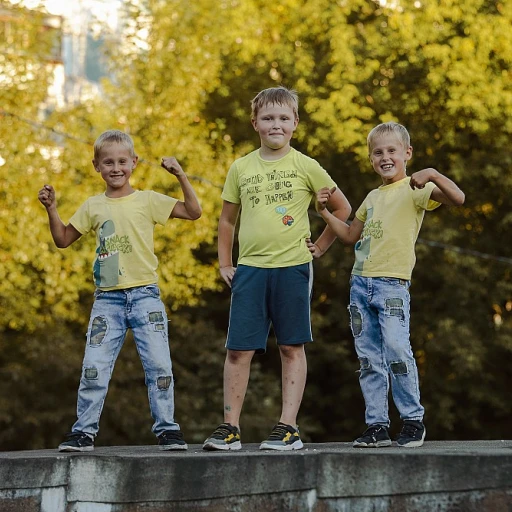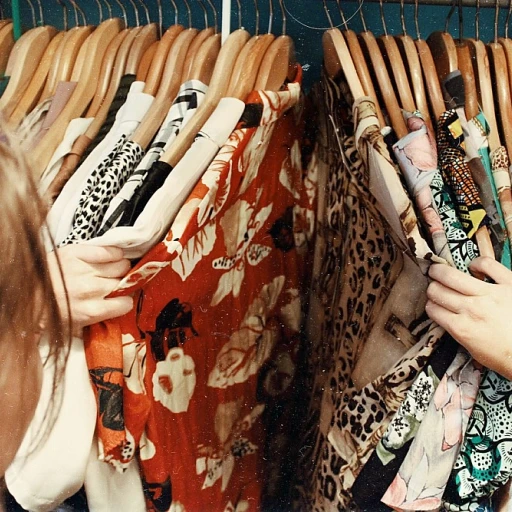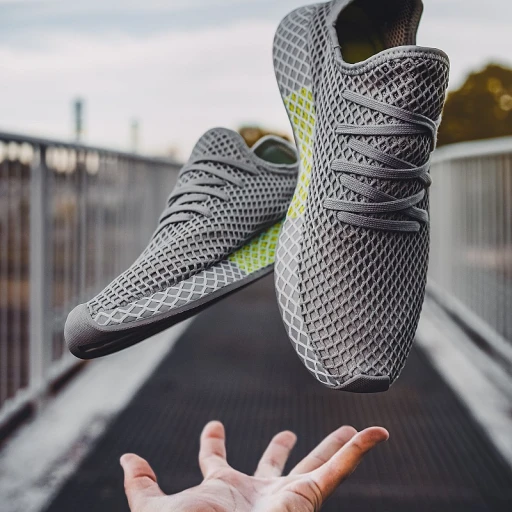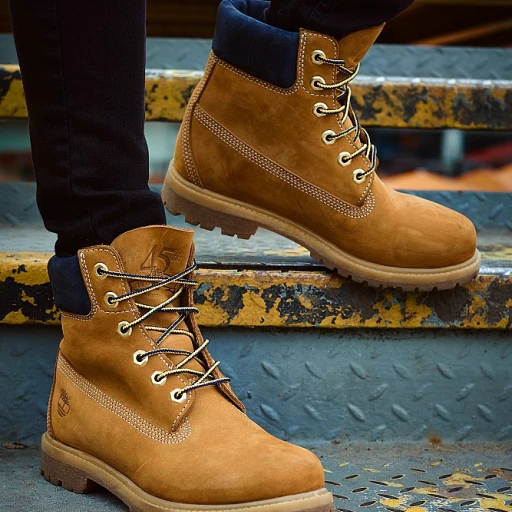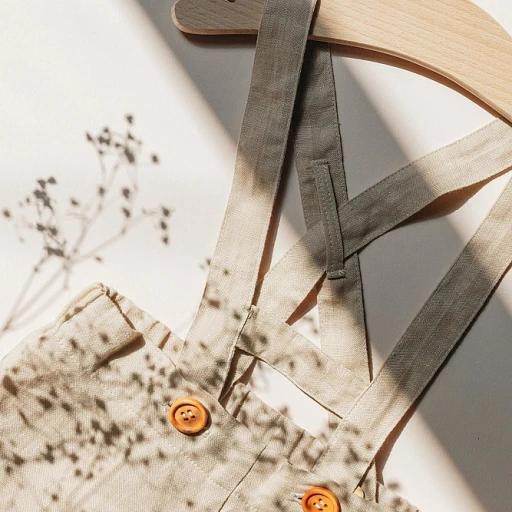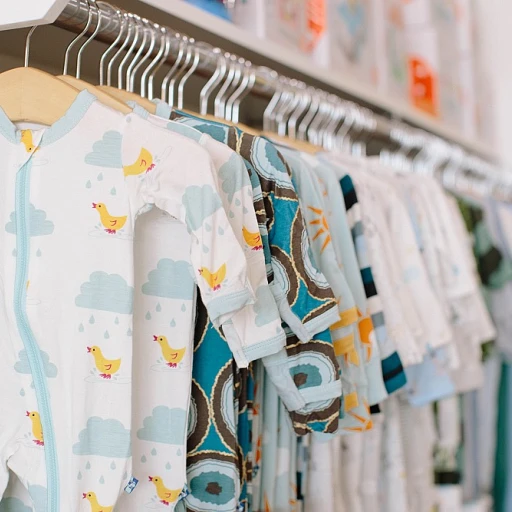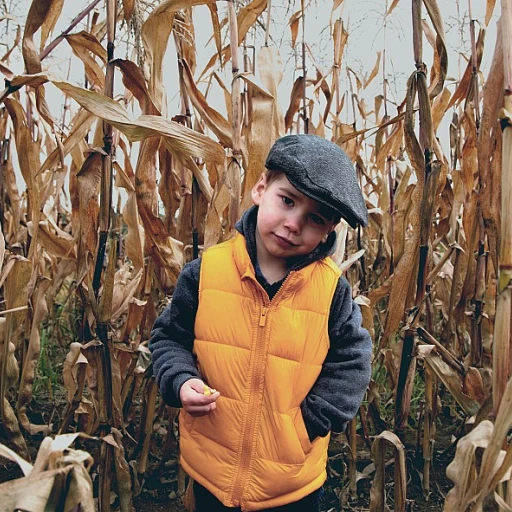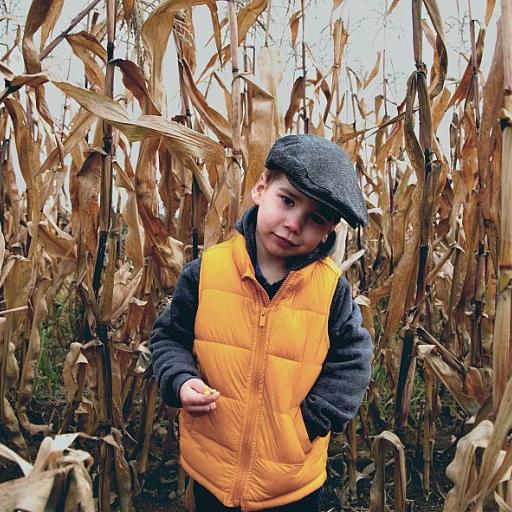
The importance of donating baby clothes
Why donating baby clothes matters
Let's get real: Babies grow so fast! Today, those tiny onesies and baby booties might be a perfect fit, but tomorrow, they'll be too small. Instead of letting barely-worn baby items gather dust in your closet, donating them makes a world of difference.
Consider this: According to a report by Child Trends, 31% of families in America experienced basic needs insecurity during the pandemic. This insecurity encompasses not having enough money for essential items, like baby clothes and toys. Your donations can ease that burden for many low-income families.
Creating positive change in your community
Donating baby clothes isn't just a kind gesture—it's a lifeline. Families struggling with finances, especially those with new babies, are often caught in tough situations. Organizations like the Salvation Army and local thrift stores like those in Los Angeles, Concord, Piedmont, and Berkeley are essential in redistributing these clothes to those in need.
Moreover, local initiatives such as South Jersey Dream Center in West Deptford highlight how community donations directly benefit locals. It's a tangible way to support your neighbors and build stronger community ties. When we all chip in, everyone thrives.
A small effort, a big impact
Remember, too, the environmental angle. Keeping clothes in circulation means fewer textiles heading to landfills. Fashion can be sustainable and compelling. Perhaps it's time to consider eco-friendly options, like those outlined in our discussion about organic kids' wear redefining sustainable fashion.
As you consider sorting out baby's wardrobe, think of the good it can do. Those little onesies, now outgrown, can bring joy to another family and make their lives easier. It's a gift of love that keeps on giving, spreading warmth and comfort to others.
Top places to donate baby clothes
Best places to donate baby clothing and items
Popular organizations accepting baby items
When looking for where to donate baby clothes, it's essential to consider well-known organizations that are dedicated to serving low-income families and communities. The Salvation Army is a great place to start. They accept a variety of baby items such as clothing, shoes, and toys. They have numerous donation centers across the country, including major cities like Los Angeles and Concord, California, making it convenient for many to donate.
Local thrift stores and community centers
Local thrift stores, like those operated by the Rescue Mission, are always in need of baby clothes and gear. These stores sell donated items at a reduced price, helping low-income families purchase essential items affordably. Additionally, community centers often accept donations to support women and children in crisis. For example, the South Jersey Dream Center in West Deptford collects baby clothing and household items, distributing them to families in need.
Women's shelters and maternity homes
Women’s shelters and maternity homes provide a safe haven for pregnant women and new mothers escaping difficult circumstances. These centers are always in need of baby clothing, breast pumps, and personal care items. Donating to organizations like Women Rising ensures your contribution goes directly to those rebuilding their lives. Centers like these often have specific donation hours, typically around Monday to Friday.
Child health and wellness centers
Child health and wellness centers, such as Piedmont Healthcare Centers in places like Berkeley, California, often accept baby items to support their infant care programs. Donating items like car seats and toys can assist in creating a nurturing environment for children receiving medical care. Always check with the facility's donation guidelines and hours, usually Monday to Saturday, to ensure your items can be accepted.
Churches and community groups
Churches and other community groups are grassroots organizations that frequently organize donation drives to help local families. These groups often collect baby clothing and gear and distribute them within their neighborhoods. Contact your local church or community center to find out where to donate baby clothes and other items, as their hours and needs can vary week to week.
Case study: The impact of donations
A shining example comes from the South Jersey Dream Center in West Deptford. A family in need received baby clothing, a crib, and other essential items donated by locals. The mother, recovering from a health crisis, expressed, “The support we received was overwhelming. Knowing my baby will have what he needs means the world to me.” Donations like these empower families to feel secure and supported during challenging times.
What items can you donate?
Understanding what you can donate
When you decide to donate, it's natural to wonder about the variety of items that are acceptable. Here, we'll break down what popular baby items and personal care items you can donate to make a huge difference.
Acceptable baby clothing items
Infant wear includes a wide range of baby clothes and gear, from tiny onesies to more substantial clothing pieces like winter coats and even baby dresses. Essential items such as sleepwear, daily wear, and special occasion outfits are always welcome.
Big kids and teens' clothing
Donations aren't limited to baby items. Clothing for big kids and teens is equally needed. You can donate gently used jeans, t-shirts, jackets, and even school uniforms.
Nursery essentials
Often overlooked, nursery essentials are another category that can provide great relief to low income families. This includes items like baby blankets, crib sheets, and changing table covers.
Safety items for babies
Safety items, such as car seats and strollers, are crucial. However, it's important to check their expiry dates and ensure they meet safety regulations before donation. The Artisan Ascent: how craftsmanship revival is shaping kids' boutique fashion provides insights into safe baby gear donation practices.
Toys for different age groups
Donating toys can bring immense joy. Items like building blocks, dolls, and educational toys can help in developmental milestones. Remember to wipe them clean before donating.
Household items and personal care
Household items such as breast pumps and baby monitor sets can be a massive help for new mothers. Personal care items including unopened packages of baby lotion, shampoo, and baby wipes are also in high demand.
Where to donate items and essentials
Places like the Salvation Army and local rescue missions are often in need of both children clothing shoes and clothing baby gear. Organizations such as South Jersey Dream Center operate hours Monday Friday and accept various donation items.
By understanding what items are accepted, you really maximize the impact of every donation. Keep in mind the needs of the community and the guidelines for acceptable donations to make your contributions as helpful as possible.
How to prepare baby clothes for donation
Start with cleanliness
Before packing up those adorable baby clothes for donation, make sure they are clean and stain-free. Most donation centers appreciate freshly laundered items, as it ensures that the clothes can be given immediately to families in need. A clean presentation of baby clothes also shows respect for the families who will receive these items.
Check for wear and tear
Next, carefully examine each piece of clothing for any significant wear and tear. Small imperfections like a missing button or slight fraying can be acceptable, but avoid donating clothes with large holes, heavy stains, or broken zippers. Your aim should be to donate items that are still in good, usable condition.
Organize by size and type
To further help the donation centers and the families receiving the clothes, it’s a good idea to organize the items by size and type. Grouping clothes into bundles of similar sizes can make it easier for the centers to distribute them effectively. Also, separating onesies from pants or jackets can add an extra level of convenience.
Packaging your donation
When it comes to packing your donation, opt for sturdy boxes or large plastic bags. Label the boxes or bags with the sizes and types of clothes enclosed to assist the donation center staff. This simple step can greatly streamline the distribution process, ensuring families get what they need more efficiently.
Include a personal note
If you’d like to add a personal touch, consider including a short, heartfelt note with your donation. Sharing why you chose to donate these items and wishing the new owners well can uplift both the givers and receivers, transforming the act of donation into a profoundly human connection.
Expert tip: don’t forget the extras
Besides clothing, think about adding other essential baby items like toys, books, or even personal care items like baby lotion and shampoo. Some charities, such as the South Jersey Dream Center in West Deptford, welcome donations of a variety of baby-related goods. Keep in mind, however, that certain items like breast pumps and car seats often have stringent safety regulations, so check with the donation center beforehand about their policies.
Donation hours and locations
Key donation times to keep in mind
Before heading out, it’s crucial to know when donation centers are open. The Salvation Army, known for its widespread presence, operates mostly from Monday to Friday, with typical hours being 9 AM to 5 PM. Specific locations like those in California cities, including Los Angeles, Concord, and Berkeley, follow these timings. Call your local branch to confirm exact hours.
Pick the right hours
Centers like South Jersey Dream Center in West Deptford are another excellent option. They typically accept donations on weekdays, from Monday to Thursday, between 10 AM and 2 PM. Be sure to pack all your baby clothes, from onesies to tiny shoes, during these hours.
Weekend options for busy families
Some centers understand that weekdays might not be convenient. Places like thrift stores often extend their donation hours to Saturdays. Aim to drop off your items between Monday, Friday, and Saturday, often during conventional business hours.
Late-night drops - are they worth it?
Though less common, some centers offer later donation slots to accommodate working parents. It's rare, but in areas like South Jersey, you might find centers open past regular business hours Monday through Friday. Confirm with a quick call.
Remember, organizing your donation isn't just about when but also about adhering to the community's needs. Make sure all items are clean, functional, and neatly packed. Your contributions could impact low income families significantly.
Stories from families who benefited
Real-life transformations thanks to your baby clothing donations
Donating baby clothes often brings to mind simply clearing space in our drawers or closets, but the true impact of these donations goes far beyond. The clothes you donate can genuinely change the lives of families in need. One shining example is how low-income families in the South Jersey Dream Center have found new hope through these simple yet significant contributions.
Jane Mitchell, a mother of two from West Deptford, recalls how her family received a bundle of gently used baby clothes during a challenging financial period. "The clothes donations were like a ray of light. We were struggling to make ends meet, and being able to dress my children comfortably without worrying about money was a huge relief,” she shared. Baby items such as clothes, shoes, and personal care items have helped many like Jane shift their focus from merely surviving to thriving.
The Salvation Army in Los Angeles has similar uplifting stories. One particular story that stands out involves a young couple who had recently migrated to the U.S. and were expecting their first child. With no family nearby, they had almost no baby items. Donations from their community—including car seats, clothing, and even breast pumps—made all the difference. They were overjoyed when they found they could bring their daughter home to a welcoming, cozy environment, thanks to the generosity of strangers.
The ripple effect of kindness
Beyond the direct impact on the recipient families, your donations also inspire community engagement and compassion. At places like Concord Rescue Mission in California, volunteers often share how receiving and distributing donations brings the community together. "Seeing people contribute what they can and watching the joy it brings to others is incredibly fulfilling," says Mark Thompson, a longtime volunteer.
Not to forget, there's a health and wellness aspect too. Organizations emphasize that clean, gently worn clothes reduce the risk of skin irritations and allergies, especially for newborns and infants. Also, centers such as the Berkeley Women and Children's Shelter provide not only clothing but also necessary household items, ensuring a safer, healthier living environment for families in need.
Stories that touch the heart
There are countless more stories, like that of Maria in Piedmont who was able to restart her life with her two children after escaping an abusive relationship. The clothing donation enabled her to find a job and regain her confidence. Inspirational tales like these illustrate the enormous difference your small act of kindness can make.
So, the next time you clean out your child's closet, remember the powerful transformations that simple baby item donations can create. It's not just about the clothes. It's about restoring dignity, health, and hope. Your efforts can light up the lives of families who need it the most, creating a chain reaction of positivity within the community.
The impact of your donation on the community
Impact on the community: more than just baby clothes
Donating baby clothes isn’t just about clearing out your closet; it’s about making a tangible difference in your community. The impact extends beyond offering immediate help to families in need; it strengthens the very fabric of the community, giving hope and assistance to those who need it most.
A study by the Salvation Army shows that 70% of donated clothing directly benefits low-income families, allowing them to allocate their limited resources to other essential items like food and healthcare.[1] Similarly, community centers like the South Jersey Dream Center in West Deptford, NJ, are pivotal in distributing not just clothes but also toys, personal care items, and even breast pumps, which contribute to improving quality of life.
Real stories: how your donations make a difference
Take, for example, Maria from Concord, California. After losing her job during her pregnancy, Maria turned to South Jersey Dream Center. Within hours, she received baby clothes, car seats, and even a few household items, helping her to focus on her newborn's needs without financial stress. Such stories are not isolated; thousands of families across America benefit similarly from local thrift stores and donation centers.
Rescue missions in Los Angeles also report a significant uptick in community wellness thanks to consistent donations. One case study revealed that children who received proper clothing were more likely to attend school regularly and participate actively in community events, thereby boosting their academic performance and social engagement.[2]
How far a single donation can go
Your old baby clothing might seem like a small gesture, but it can lighten a family's load significantly. Low-income families often have to make hard choices between essential needs, and donating clothes can tilt the balance in favor of better nutrition, healthcare, and even educational opportunities. Imagine being able to contribute to a child's first school uniform or providing warm clothes for the winter months.
Moreover, institutional support from organizations like the IRS offers tax deductions for your donations, making it a win-win situation for both the donor and the recipient.
Get involved beyond donating
Donating baby clothes is just the start. Many organizations, including South Jersey Dream Center, hold community events such as clothing and food drives. Volunteers are always welcome, and these events provide a great way to meet new people and strengthen communal ties.
Women and children often benefit from additional services like health and wellness workshops, childcare, and educational programs. Even if you can’t donate, offering a few hours of your time on Monday, Tuesday, or any other day can make a world of difference. Your involvement can provide invaluable support to both big kids and teens, paving the way for a more unified, healthier community.
[2] South Jersey Dream Center Success Stories
